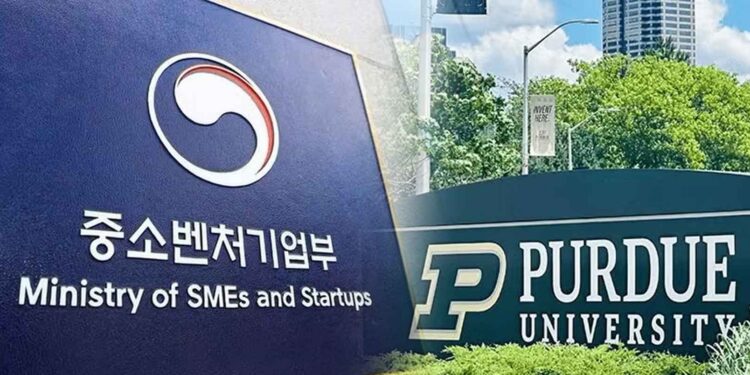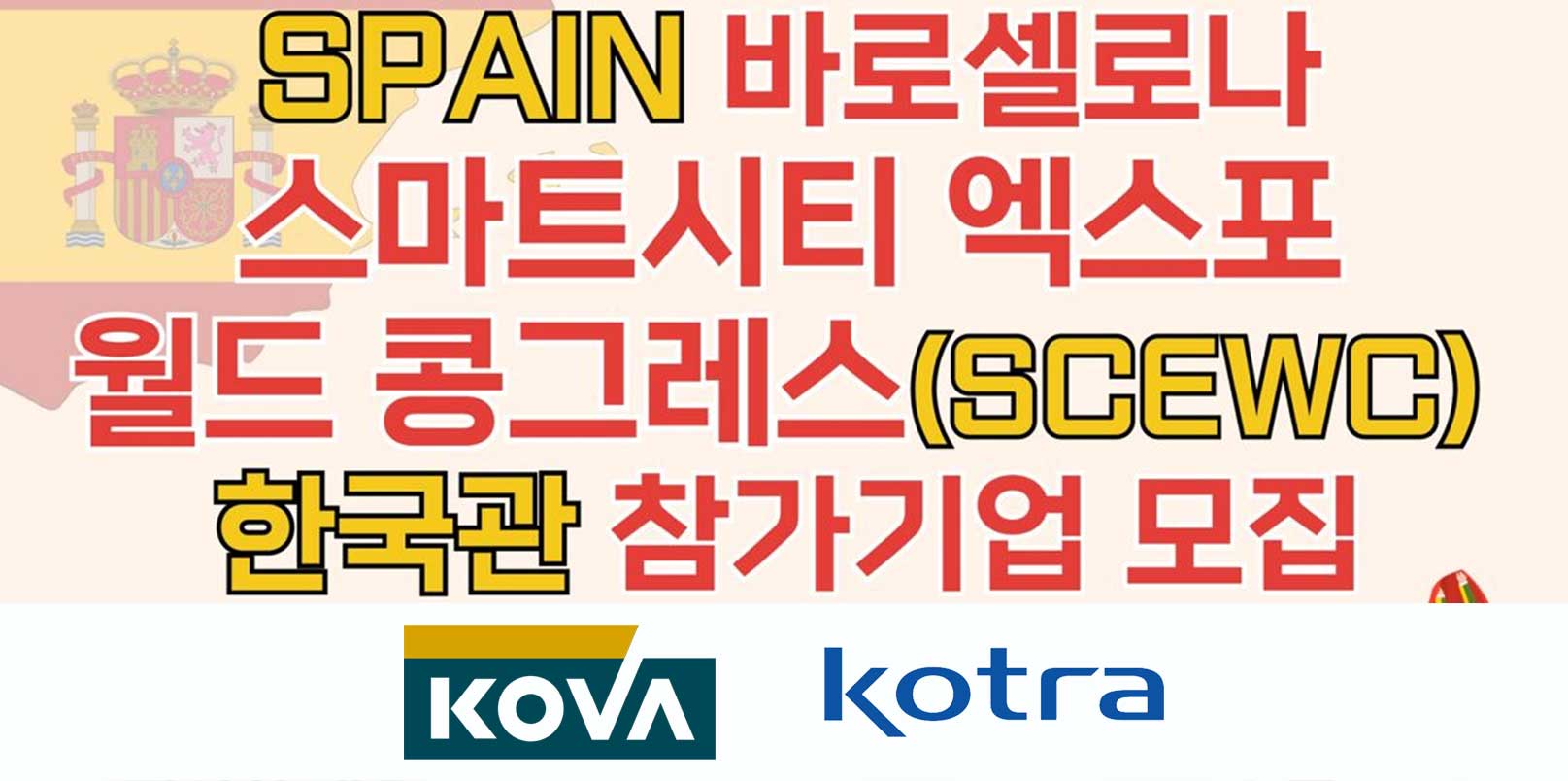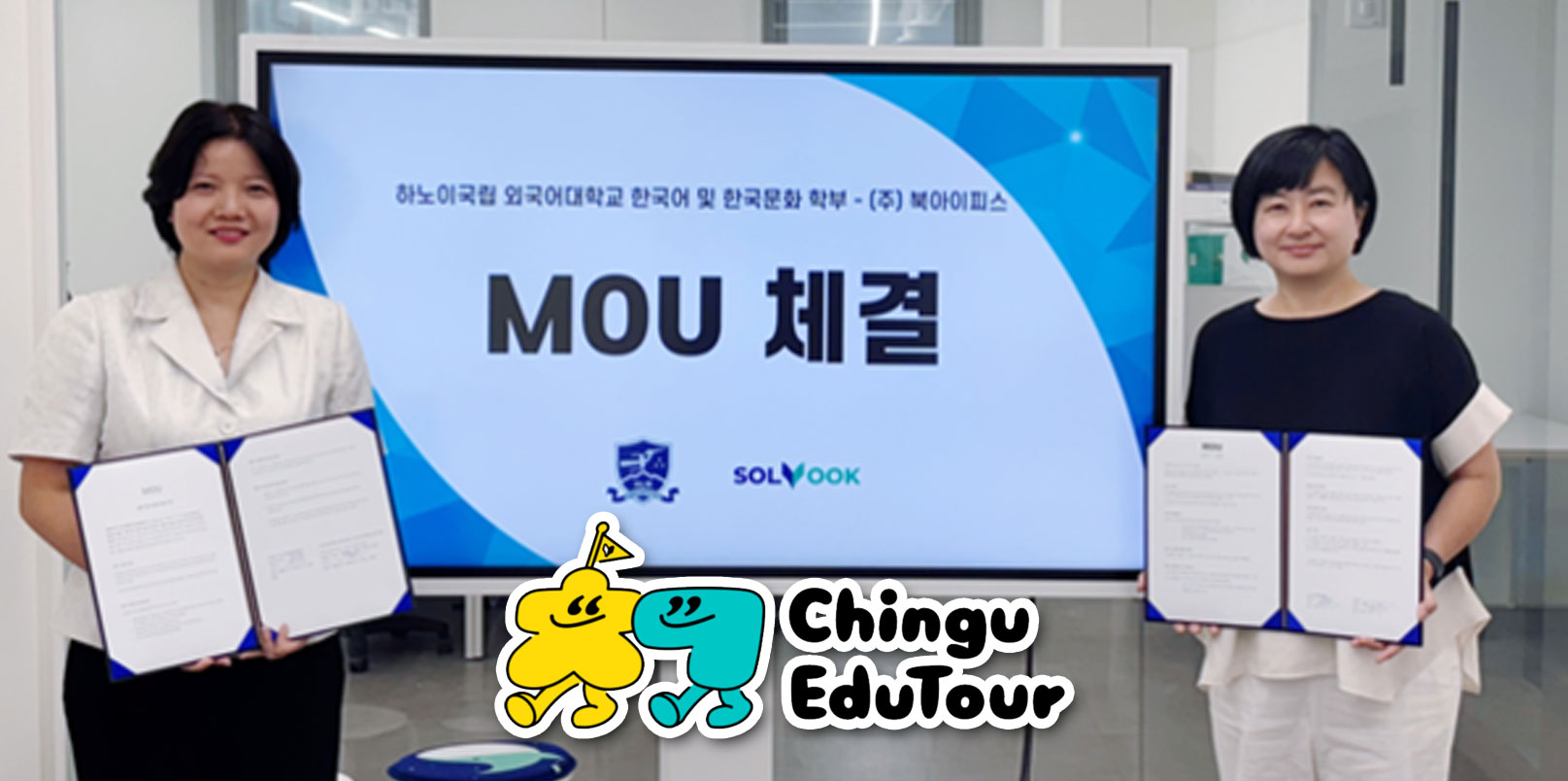Korea is stepping onto the global R&D stage with unprecedented force. Backed by strategic alliances with Purdue University, Fraunhofer, and Steinbeis, the Ministry of SMEs and Startups (MSS) has greenlit 52 projects in AI, biotech, and semiconductors in latest Global Collaborative R&D Program 2025 — a calculated move to cement Korea’s role in next-generation technology leadership.
MSS Launches Global Collaborative R&D Program 2025 with Leading US and German Institutions
The Ministry of SMEs and Startups (MSS) announced on August 10, 2025, the selection of 52 preliminary research projects for its new Global Collaborative R&D Program in partnership with Purdue University (United States), the Fraunhofer Society (Germany), and the Steinbeis Foundation (Germany).
The initiative is designed to help Korean SMEs and startups build global technological competitiveness and accelerate entry into overseas markets.
Global Collaborative R&D Program Targets Korea’s Super-Gap Technologies
Launched the first time in 2025, the Global Collaborative R&D Program supports Korea’s strategy to secure leadership in super-gap technologies, focusing on artificial intelligence (AI), biotechnology, and semiconductors.
The Korea Technology and Information Promotion Agency for SMEs (TIPA) has formalized cooperation agreements with Purdue University, the Fraunhofer Society, and the Steinbeis Foundation, enabling joint R&D projects aligned to each institution’s research strengths.
52 Projects Selected Through Targeted RFP Process
To identify high-impact collaborations, MSS and its partners developed Requests for Proposals (RFPs) based on each institution’s expertise and matched them to domestic SME needs. Proposals for the Global Collaborative R&D Program 2025 were evaluated for relevance, innovation potential, and feasibility of cooperation.
The result:
- 17 projects with Purdue University
- 29 projects with the Fraunhofer Society
- 6 projects with the Steinbeis Foundation
All 52 projects span ten strategic sectors essential for Korea’s competitiveness, with AI, biotechnology, and semiconductors as primary areas of focus.
Six-Month Preliminary Stage to Define R&D Roadmaps
The selected projects will undergo a six-month preliminary research phase to:
- Develop strategic collaboration plans with overseas partners
- Establish detailed R&D roadmaps
- Set phased development milestones
Following this stage, MSS will conduct a competitive review to select the most promising projects for second-phase full-scale research, set to begin in 2026.
MSS Addresses IP and Legal Challenges in Global R&D
Acknowledging the potential intellectual property (IP) and legal issues in cross-border research, MSS hosted a Global Collaborative R&D briefing on August 5, 2025.
The session, organized in collaboration with law firm Lee & Ko and other IP-specialized institutions, provided participating SMEs with guidance on rights protection and legal risk management during international collaborations.
Expanding Korea–Europe–US R&D Cooperation for Global Market Entry
By linking Korean SMEs with leading research institutions in the United States and Germany, the program aims to accelerate innovation in critical technologies, strengthen commercialization capabilities, and enhance Korea’s position in global value chains.
MSS plans to expand these cooperative frameworks across Europe and Asia, creating additional opportunities for Korean startups to engage in frontier research and gain access to high-growth overseas markets.
Park Yong-soon, Director-General for Technology Innovation Policy at MSS, said:
“Global Collaborative R&D is an opportunity for our SMEs and startups to develop globally competitive technologies in collaboration with leading research institutions. We will continue to expand international partnerships to support their successful entry into global markets.”
Global Collaborative R&D Program 2025: Strategic Significance for Korea’s Startup and SME Ecosystem
The 2025 Global Collaborative R&D Program is beyond a regular initiative. This project is a strategic mechanism to integrate Korean SMEs into international research networks, align domestic innovation with advanced global labs, and translate high-potential research into market-ready solutions in AI, biotechnology, and semiconductors.
For founders and SME leaders, the six-month planning stage is a critical window to formalize partnerships and roadmaps that will position their projects for success in the 2026 full-scale phase.
Stay informed on Korea’s fast-moving startup and tech scene—follow KoreaTechDesk on social media: LinkedIn, X (Twitter), Bluesky, and Facebook for insights, funding news, and industry updates.










